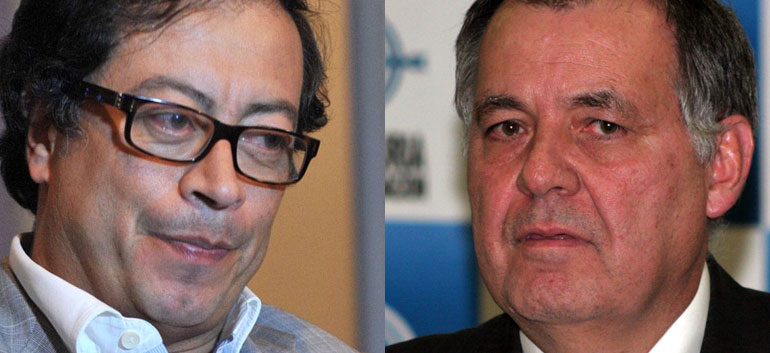Bogota Mayor Gustavo Petro acted within the law when trying to reform the city’s trash collection, a judge ruled Wednesday.
The ruling undermined a December ruling of the country’s Inspector General, who had claimed exactly the opposite as the judge and promptly dismissed Petro in addition to barring the leftist politician from holding public office for 15 years.
MORE: Colombia’s Inspector General dismisses Bogota mayor over trash collecting scandal
According to the Bogota court, Petro’s Decree #564 that sought to bring trash collection under state control and according to Inspector General Alejandro Ordoñez was illegal, was perfectly legal.
Trash collection, the judge argued, falls under the responsibility of government and may be nationalized if the national, a state or a municipal government decides to.
According to Ordoñez, the Bogota initiative to remove the trash collection from private companies violated the right to free enterprise.
The controversial decision to remove an elected official from office led to a series of national and international reactions.
Supporters of Petro gathered for nights on end to protest the dismissal while the United Nations and the Inter-American Commission for Human Rights urged the Inspector General to clarify his decision.
MORE: Pro-Petro marches mobilize hundreds in Colombia’s major cities
MORE: Petro vs. Colombia — can international bodies save Bogota’s mayor?
Citizens that sued the state over Petro’s dismissal claimed Ordoñez’ actions were politically motivated and a violation of their right to elect and Petro’s right to be elected.
Wednesday’s court ruling is the second to affirm Petro acted within the law.
The Bogota Mayor has not yet been forced from office as a third court ruled that the Inspector General’s ruling may not be carried out until an impeachment referendum is held.
MORE: Petro’s term as Bogota mayor threatened by public vote
This referendum had already been called for when the inspector general dismissed the mayor, but has paradoxically lost momentum as Petro’s popularity nearly doubled since the controversy.
MORE: From Mayor to Martyr: Gustavo Petro’s unexpected rise
The referendum will be held on March 2, a week before congressional elections are held in Colombia.



